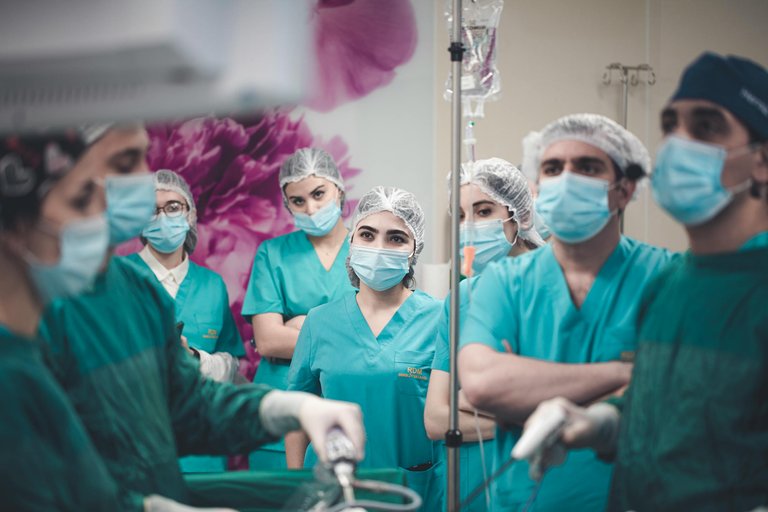Harvesting organs from the dead may never be acceptable in our society but if due process is followed, with time, the idea may be bought. This is not to say that this rule will not meet a brick wall. Some of the likely positive outcome of the rule may include:
Living A Careful Life
People will become very conscious of how they live life. They will embrace moderation in consumption of food and will engage in eating healthily. The consciousness that human organs that are functional at death will be harvested will make people consider their ways of life in driving, eating, drinking and whatnot. The government should not just make it compulsory but make it a national honour when vital organs of a dead person are preserved in the life of another. This will call insensitive people to order.
Awareness
The public will be educated on the need of organ harvesting and preserving the lives of the living who need one organ or the other to continue life's journey.
Organs Bank and Cheap Transplant
There may be no need for travelling to India for a transplant. Every nation or the particular nation where the rule has been made will have enough organs to transplant and over time, the procedure will become cheap.
Best Match
Since there are enough organs to choose from, doctors will have a pool of matching organs to choose from to avoid some of the complications that occur during and after such a surgery must have been carried out.
Reduction In Waiting Time
There are usually a long list of waiting patients who need one organ or the other but with the availability of organs the waiting time and list will be drastically reduced thereby improving the living conditions of many people.
Increased Number of Organs
With such a law, there will be an improved number of organs available for those in need. May I also say that the death rate may reduce drastically.

Stéf-b
However, It would be a wild goose chase to legislate that individuals who are dying"compulsorily" give their functional organs to those who are living. This thought or imagination could be termed barbaric. In a democratic society like ours, some things will never be allowed to happen, one of such things is compulsory harvest donation.
Some religions do not allow their dead to be opened up let alone removing part of their bodies. Hence, this rule could be in violation of their belief. And knowing that everyone has the right and liberty to choose their association and religion, the government has no power to trample upon the rights of citizens of a nation. Family members will never be in support of this and may for this reason engage in legal tussle with the authorities.
Even after life, the dead are honoured. Removing vital parts may be a dishonour to the dead. It is a disrespect to human dignity if organs are to be compulsorily harvested.
Due to corruption, some highly placed individuals may not allow their loved ones who are dead are not allowed to go through such pain or rigorous process. What I am saying in essence is that the law may not be for all at the end of the day. In Nigeria and in other nations of the world, there are people who seem to be bigger than the rules. And since we do not live in an egalitarian society such rules may become chaotic.
For such a procedure to be enacted, there may be a need for stringent set rules after a wide range of consultation and conferences. Waking up one morning and reading on the headline news that it is now a law that organ harvesting would be carried out on the dead will be met with a high level of resistance, no doubt. What the government should do instead is to ensure that a dialogue is put up on the subject. And to make laws in Nigeria or any democratic state for that matter is not a one-man business. There are procedures before a bill such as organ harvesting will become law.
If the government persists in enacting the rule then the people may lose trust in the public healthcare system. They may result in caring for themselves in the traditional ways. Knowing that they are at the mercy of the health workers who may now become the lords of the life of people in a corrupt society like ours where the highest bidder takes all. Wealthy people could begin to bribe their way through health practitioners to get organs from poor people as must have been seen in recent cases. The healthcare system is professionally one that has etiquette. One of the etiquette of the health care business is confidentiality. In this case, the professional etiquette may be lost.
Voluntary organ donation may cease. Before now, people have voluntarily agreed to donate vital body parts, especially organs to their friends or relatives for them to have another shot at life but when it is made compulsory, people may withdraw from rendering such services. The feeling that organs may be taken without permission is a pointer to the fact that people are not safe with the hospitals as their organs may be ripped with permission.
Also, individuals may decide not to report cases of death. One of the important aspects of living in a modern or civilised world is to report cases of death in order to help policymakers to plan using the number of people alive in arriving at a conscious decision in policy making. But with the compulsory organ harvesting, people may decide to keep their sick people at home and when they die, they will proceed with burial without following due process for the fear of removing functional organs.
